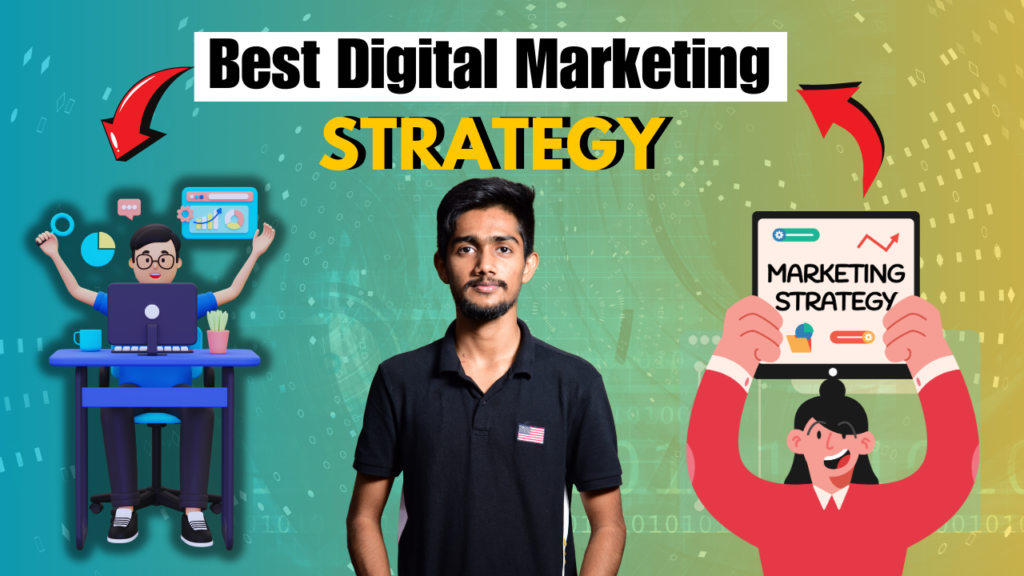A Successful Digital Marketing Strategy: Key Components and Insights
In today’s fast-paced digital world, businesses of all sizes recognize the importance of having a strong online presence. A successful digital marketing strategy focuses on leveraging various online tools and platforms to connect with target audiences, drive engagement, and achieve business goals. However, crafting a winning strategy involves more than just sporadic social media posts or random ad campaigns. It requires a well-thought-out plan, backed by data, creativity, and consistency. Let’s dive into the essential components of a successful digital marketing strategy and how it can transform your business.
What Is a Digital Marketing Strategy?
A digital marketing strategy is a comprehensive plan that outlines how a business will achieve its marketing goals using online channels such as websites, social media, email, search engines, and more. It’s not just about being present online; it’s about leveraging the right tactics to reach the right audience at the right time. A successful digital marketing strategy focuses on clear objectives, measurable outcomes, and a deep understanding of the target market.
Key Components of a Successful Digital Marketing Strategy
1. Setting Clear Goals
Every strategy starts with defining what you want to achieve. Are you looking to increase website traffic, generate leads, boost sales, or enhance brand awareness? Your goals should be specific, measurable, attainable, relevant, and time-bound (SMART). For instance, instead of saying, “We want more website visitors,” a SMART goal would be, “We aim to increase website traffic by 25% in the next three months.”
2. Understanding Your Target Audience
Knowing your audience is at the core of any marketing strategy. Who are your ideal customers? What are their pain points, preferences, and online behaviors? Creating detailed buyer personas can help you tailor your content, ads, and messaging to resonate with your audience.

3. Conducting Market Research
A successful digital marketing strategy focuses on understanding the competition and identifying market trends. Analyze what your competitors are doing well and where they fall short. Tools like Google Trends, SEMrush, and Ahrefs can provide valuable insights into industry trends and keyword performance.
4. Optimizing Your Website
Your website is often the first impression of your business. Ensure it’s user-friendly, mobile-responsive, and optimized for search engines. Fast loading speeds, clear navigation, and high-quality content are essential for a positive user experience (UX).
5. Leveraging SEO
Search engine optimization (SEO) is a crucial component of any digital marketing strategy. By optimizing your website and content for search engines, you can improve your visibility and attract organic traffic. Focus on:
- Keyword research
- On-page SEO (meta descriptions, headers, alt tags)
- High-quality backlinks
- Regularly updated content
6. Content Marketing
Content is the backbone of digital marketing. A successful strategy focuses on creating valuable, relevant, and engaging content that addresses your audience’s needs. This includes blog posts, videos, infographics, eBooks, and more. Consistency in posting and aligning content with your goals is key.
7. Social Media Marketing
Social media platforms offer unparalleled opportunities to connect with your audience. A successful digital marketing strategy focuses on the platforms where your target audience spends the most time. Develop a content calendar, engage with followers, and use paid ads to expand your reach.
8. Email Marketing
Despite being one of the oldest digital marketing channels, email remains highly effective. Build an email list and segment it based on user behavior or demographics. Use personalized, value-driven content to nurture leads and convert them into loyal customers.
9. Pay-Per-Click Advertising (PPC)
PPC campaigns, such as Google Ads or social media ads, are great for driving immediate results. A successful strategy focuses on optimizing ad spend, targeting the right keywords, and creating compelling ad copy.
10. Analytics and Measurement
What gets measured gets improved. Use analytics tools like Google Analytics, HubSpot, or social media insights to track the performance of your campaigns. Regularly analyze data to identify what’s working and what needs adjustment.
The Role of Personalization in Digital Marketing
Personalization has become a game-changer in digital marketing. Consumers now expect tailored experiences based on their preferences and behavior. Use data-driven insights to create personalized content, product recommendations, and targeted ads. For example, email campaigns with personalized subject lines have higher open rates than generic ones.
Challenges in Digital Marketing and How to Overcome Them
1. Keeping Up with Trends
The digital marketing landscape is constantly evolving. Staying updated on the latest trends, tools, and algorithms is essential. Subscribe to industry blogs, attend webinars, and invest in continuous learning.
2. Managing Budget Constraints
Not every business has a large marketing budget. Prioritize your spending by focusing on high-ROI strategies like SEO and content marketing. Over time, reinvest profits into paid campaigns.
3. Standing Out in a Saturated Market
With so many businesses competing for attention, differentiation is key. Highlight your unique selling points (USPs) and focus on delivering exceptional value to your audience.
Case Study: How a Local Business Thrived with a Digital Marketing Strategy
Consider the case of a small local bakery that wanted to increase online orders. By implementing a successful digital marketing strategy focusing on SEO, Instagram marketing, and email campaigns, they achieved:
- A 40% increase in website traffic within six months
- A 25% boost in online sales
- Improved customer retention through personalized email offers
This example highlights the transformative power of a well-executed digital marketing strategy.
Conclusion
A successful digital marketing strategy focuses on a holistic approach—combining clear goals, audience insights, diverse channels, and data-driven decisions. Whether you’re a small business owner or part of a large enterprise, investing time and resources into your digital marketing efforts can yield significant results. Stay adaptable, embrace creativity, and keep your audience at the heart of everything you do.



Pingback: How Entrepreneurs Can Use Business Blogspot to Build - Blog
Pingback: How to Start Affiliate Marketing on Digistore24 in Sri Lanka - Musha Bro